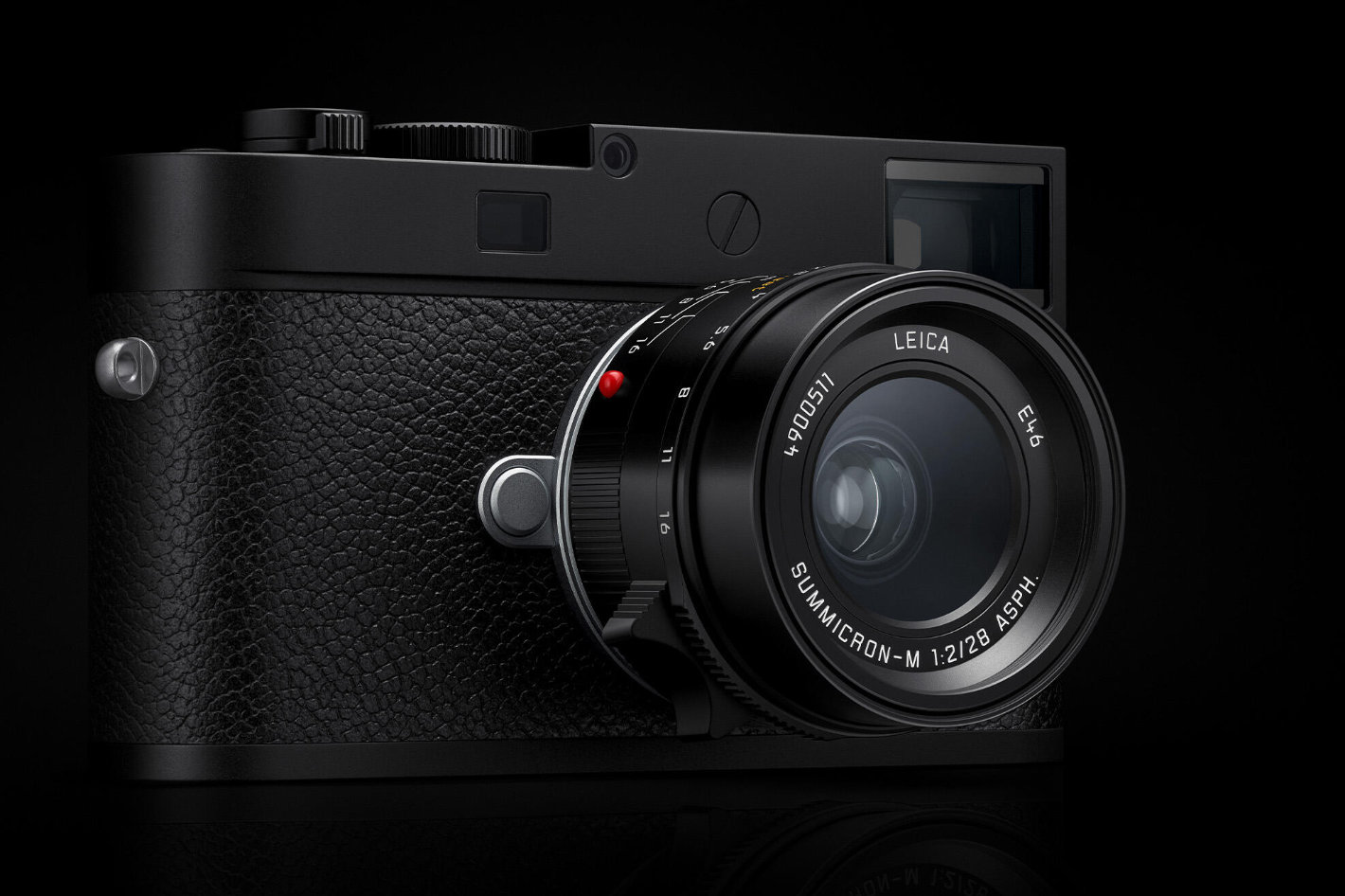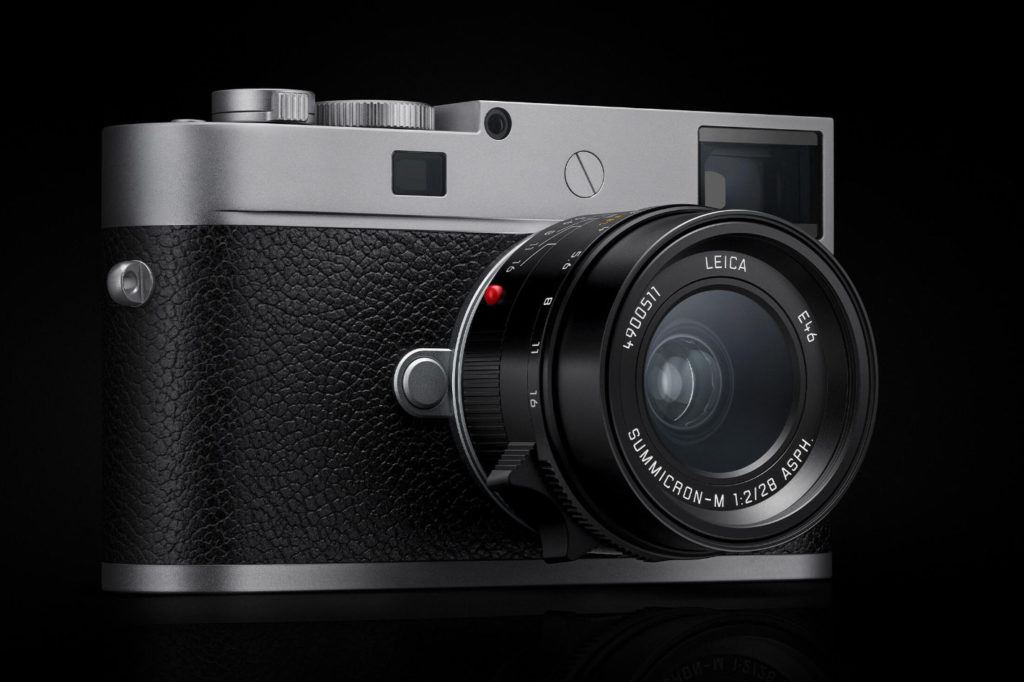
A black and a silver version of the Leica M11-P is now available globally at all Leica Stores, the Leica Online Store and Leica authorized dealers. The US retail price will be $9,195, and that’s the price you’ll have to pay if you want to have the world’s first camera to store metadata by attaching Content Credentials at the point of capture to protect the authenticity of digital images. Content Credentials are the digital nutrition label and most widely adopted industry standard for content of all kinds, and the foundation for increased trust and transparency online. With the M11-P, Leica acknowledges the invaluable work of all photographers and preserves the trust and transparency in digital content and its sources.
In today’s digital era, when content can be easily manipulated, forged and artificially created images deprive consumers of their trust in the accuracy of digital content and make it difficult to prove the authenticity of one’s own pictures. A fatal problem, which threatens the basis of photographic reporting. The M11-P pioneers the use of secure metadata in compliance with the Content Authenticity Initiative (CAI) open-source standard. This feature provides an additional layer of transparency when designing and modifying an image. It allows information such as names, dates, changes made and tools used to be securely attached, creating awareness of the file’s origin. With Content Credentials, each Leica M11-P image captured receives a digital signature backed by a CAI-compliant certificate. The authenticity of images can be easily verified at any time using a freely available, open-source CAI tool or by visiting https://contentcredentials.org/verify .
The Content Authenticity Initiative (CAI) has been around since 2019, when Adobe co-founded the initiative to help combat the threat of misinformation and ensure proper attribution for creators. Today the CAI is a coalition of nearly 2,000 members, including AFP, the Associated Press, the BBC, Getty Images, Leica Camera, Microsoft, Reuters, The Wall Street Journal, and more, all working together to add a verifiable layer of transparency and trust to content online – via secure metadata called Content Credentials. Between the tremendous momentum in attracting new members and the growing adoption of Content Credentials by leaders spanning multiple industries, the CAI is ensuring that technological innovations are built on ethical foundations.
Santiago Lyon, Head of Advocacy and Education, CAI, says that “we are thrilled to announce that industry-leading camera manufacturer Leica is officially launching the new M11-P camera — the world’s first camera with Content Credentials built-in. This is a significant milestone for the Content Authenticity Initiative (CAI) and the future of photojournalism: It will usher in a powerful new way for photojournalists and creatives to combat misinformation and bring authenticity to their work and consumers, while pioneering widespread adoption of Content Credentials.“
Santiago Lyon notes that “with manipulated content and misinformation more on the rise than ever, trust in the digital ecosystem has never been more critical. We are entering a new era of creativity, where generative AI is expanding access to powerful new workflows and unleashing our most imaginative ideas. The Leica M11-P launch will advance the CAI’s goal of empowering photographers everywhere to attach Content Credentials to their images at the point of capture, creating a chain of authenticity from camera to cloud and enabling photographers to maintain a degree of control over their art, story and context.”
Leica´s Content Credentials technology ensures the picture’s authenticity by means of special hardware in the camera. It includes a special chipset for storing digital certificates of the German Federal Printing Office. The state-of-the-art integration guarantees complete verifiability of a picture’s origin. Leica is setting a new standard for the protection of digital content, but a question remains: will other camera makers follow Leica’s example? In a world where the use of AI is growing for anything from adjusting exposure to get better – artificially enhanced many times – photos, is there space for the Content Credentials from the Content Authenticity Initiative?
Dr. Andreas Kaufmann, Chairman of the Supervisory Board of Leica Camera AG: “Leica cameras have always stood witness to iconic moments in world history. However, determining the authenticity of visual content has become increasingly difficult and important in the age of digital photography. Now with the ability to provide this proof, we are once again strengthening trust in digital content and re-establishing Leica cameras as authoritative tools in the documentation of world events.”
When the “Leica Content Credentials” function is activated in the camera menu, the Content Credential logo is visible in the display and every image taken by the Leica M11-P is reliably signed using a special algorithm. The image thus receives an unalterable and verifiable proof of camera model, manufacturer, and image attributes. The authenticity of these certificates can be verified and examined by means of free CAI open-source tools at any time. They prove whether an image is available in the original or in an edited version and in the latter case, they provide insight into the history of the content changes. So photographers can demonstrate the authenticity of their pictures from the moment they are taken to the time they are published.
Further distinguishing features of the Leica M11 perfect the intuitive, unique, and unobtrusive style of M photography that is especially appreciated by photojournalists working in conflict areas. The deliberate omission of the red Leica dot on the camera front, for example, allows for even more discreet photography. Instead, a subtle Leica lettering is engraved on the top plate. This plate and the bottom cover are milled from aluminum in the matte black Leica M11-P and from brass blocks in the silver chrome camera version.
Merged with an all-metal body made of a highly solid magnesium alloy, the interior of the camera is carefully protected. The LCD monitor made of sapphire crystal glass with anti-reflection protective coating enables an optimal evaluation of the pictures in all lighting conditions. The Leica M11-P, with its 60 MP BSI CMOS sensor and Triple Resolution Technology as well as the high-performance Maestro-III processor, combines state-of-the-art camera technology with maximum flexibility. Finally, the large internal memory with 256 GB makes the camera a reliable and functional precision tool “Made in Germany” that is always ready for use.
And because it’s a Leica… there are also two new black leather accessories for the M-System: The M-System case, as well as the carrying strap, once again emphasizing the clean lines in the design of the new Leica M11-P.



